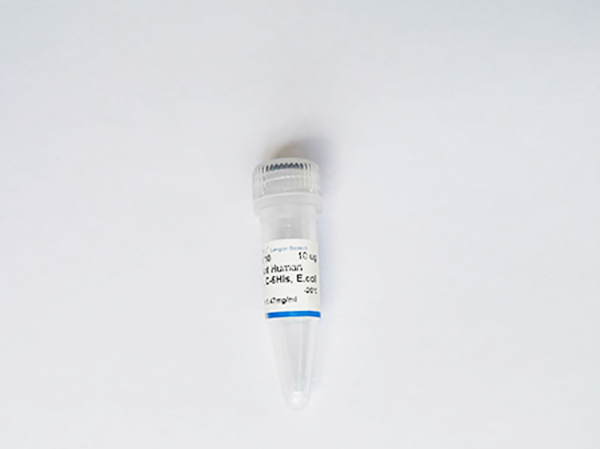概述
Recombinant Dechloromonas Aromatica Chlorite Dismutase is produced by our E.coli expression system and the target gene encoding Met35-Asp282 is expressed with a 6His tag at the N-terminus.
使用说明
This material is offered by Sangon Biotech for research, laboratory or further evaluation purposes. NOT FOR HUMAN USE.
技术规格
| Tag | N-6His |
| 种属 | Dechloromonas aromatica |
| 表达系统 | E.coli |
| Accession# | Q47CX0 |
| Source | E.coli |
| Formulation_Description | Lyophilized from a 0.2 μm filtered solution of PBS, 0.5mM EDTA, pH 7.4. |
| Storage | Lyophilized protein should be stored at < -20°C, though stable at room temperature for 3 weeks.Reconstituted protein solution can be stored at 4-7°C for 2-7 days.Aliquots of reconstituted samples are stable at < -20°C for 3 months. |
| Reconstitution | Dissolve the lyophilized protein in distilled water. |
| Purity | Greater than 95% as determined by reducing SDS-PAGE. |
| Endotoxin | Less than 0.1 ng/μg (1 EU/μg) as determined by LAL test. |
| Background | Chlorite dismutase (Cld) found in prokaryotic organisms, also known as Chlorite O2-lyase, is a b-type heme containing enzyme that catalyzes the reduction of chlorite into chloride plus dioxygen. The subunit of chlorite dismutase consists of a heme free N-terminal and a heme b containing C-terminal ferredoxin-like fold with high structural homology to the dye-decolorizing peroxidases (DyPs). The physiological role of Cld in prokaryote has been shown that some microorganisms can use perchlorate or chlorate as terminal electron acceptors for anaerobic respiration thereby producing chlorite that must be detoxified. This enzyme has gained attention because it can be used in the development of bioremediation processes, biosensors, and controlled dioxygen production. |











 党沛
党沛 





